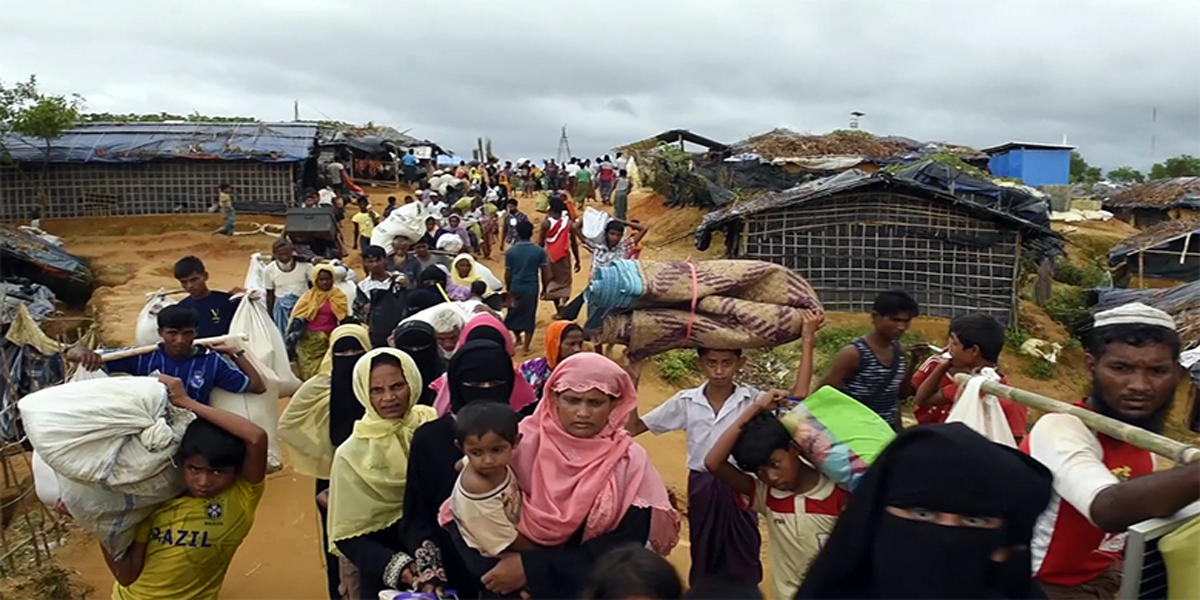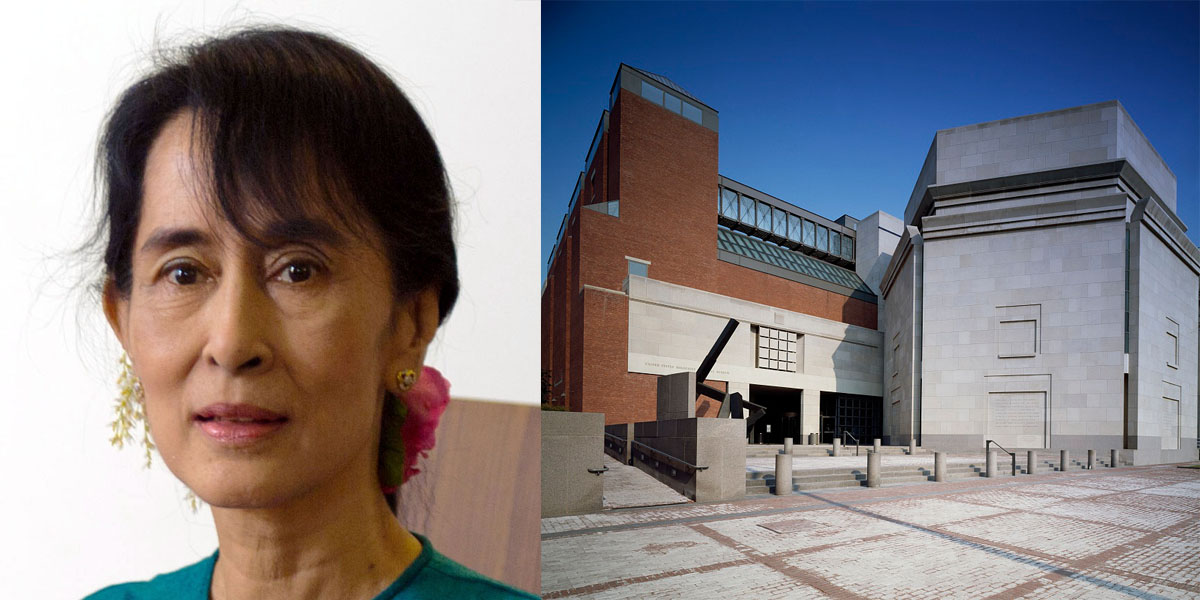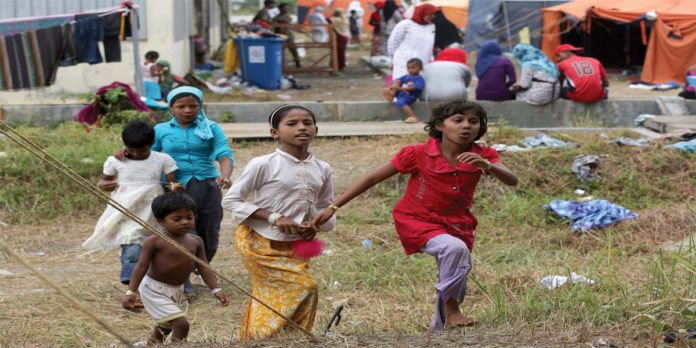The International Court of Justice at The Hague ordered Myanmar to protect its long-persecuted Rohingya Muslim population and “take all measures within its powers” to prevent a genocide from taking place against them. The huge, massacre rape and displacement of the Rohingya, carried out by the Myanmar military between August 2016 and October 2017, while the government of Ms Aung San Suu Kyi kept quiet. In the recent brutal campaign which resulted in approximately 800,000 Rohingya fleeing to neighbouring Bangladesh.
Rohingya Refugees
Hundreds of thousands of Rohingya have fled oppression in Myanmar and settled in mostly Bangladesh, Pakistan and Saudi Arabia. Even in their new lands, where they are comparatively safe from physical harm, their lack of formal status continues to trouble them. For instance, in Pakistan, Burmese Muslims are consistently bullied by the police and forced to pay extortion.

The International Court of Justice in The Hague has ordered Myanmar to stop genocide of the country’s remaining Rohingya Muslims. The court in the Netherlands was acting on a request from the many Muslim-majority country of Gambia for measures to protect the Rohingya. Gambia brought the complaint on behalf of the 57-nation Organization of Islamic Cooperation, which accuses Myanmar is guilty of genocide against its Rohingya minority. Myanmar is a signatory of the 1948 Convention for the Prevention and the Punishment of the Crime of Genocide. The ICJ also ordered Myanmar to preserve evidence of the Rohingya’s persecution and to report in four months on the protective measures it has taken.
The ICOE finalized that while some Myanmar soldiers probably committed war crimes and that the military crackdown had been conducted with “genocidal intent.” A 2018 report by the U.S. State Department described the military’s actions as “extreme, large-scale, widespread” but also directed clear of the term genocide.
Problems faced by Rohingya refugees
The suffering of the Rohingya long a persecuted minority in Myanmar has brought international scrutiny to the government of Suu Kyi, a Nobel Peace Prize winner once praised as a defender of human rights who has however faced accusations that she stood aside as her country’s military carried out a campaign of terror against the Rohingya. The U.N. estimates that at least 10,000 Rohingya were killed by Myanmar’s state forces in the August 2017 clampdown, but others put the number higher. Human Rights Watch says another 730,000 fled Myanmar, crossing the border into Bangladesh, since the cruelty began in August 2017.The recent violence in northern Rakhine State was massive, large-scale, widespread, and apparently oriented toward both terrorizing the population and driving out the Rohingya residents. “The report recognizes that the scope and scale of the military’s operations shows they were well- intended and harmonized. It also details systematic rape and the targeting of women and children.

The report has come at a time when the Trump administration is engaged in a large campaign against the ICC, pledging never to acknowledge the court’s authority. In an address to the U.N. General Assembly Tuesday, President Trump stated that United States will provide no support in recognition to the International Criminal Court. As far as America is relevant, the ICC has no jurisdiction, no legitimacy, and no authority.
A report by the U.N. last month called for top military top in Myanmar’s army to face charges of genocide over the crackdown on the Rohingya, and the ICC chief prosecutor took steps to open an inquiry into the alleged crimes. Myanmar’s military chief responded by warning against any interfering by the international community. The official said the U.S. will remain centered on improving the situation and holding those responsible accountable and that these findings will inform the decisions of Secretary Mike Pompeo and other policymakers moving forward on those aims.
Human rights activist were thwarted with the U.S. position. It is frustrating the State Department evaded legal determinations, but at this point the turmoil has settled and we have a very clear picture of what crimes have been committed and how,” Matthew Smith, of the Southeast Asia-based Fortify Rights, told NPR in an email. Smith says the question is now about action and that the administration should be doing more to guarantee accountability for genocide and crimes against humanity. They should help set up an ad hoc criminal tribunal as well as the creation of an independent mechanism to gather and maintain evidence,” Smith said.
The State Department’s report came on the same day the Trump administration announced it was almost twice its aid for the Rohingya in Bangladesh and Myanmar. However, with so much pressure on Bangladesh that the government has announced plans to start moving Rohingya refugees to a far flung island in the Indian Ocean next month.
The International Court of Justice has not come up with a satisfactory decision on the persecuted Rohingya population of Myanmar after months of , and has ordered the Myanmar regime to take immediate measures to protect its Muslim Rohingya population from persecution and atrocities, and preserve evidence of committed crimes against them. The 17-judge court’s decision, on a plea by a small Muslim African country, Gambia, deals with the plaintiff’s request for intrductory measures.
The soft decision has some hard expressions in the summary of the decision. Presiding judge Abdulqawi Yousuf wrote that the Rohingyas were ‘at serious risk of genocide’, calling for measures to be taken by the Myanmar regime within their power to prevent acts prohibited under the 1948 Genocide Convention. The ruling seeks report on the implementation of the measures in four months. The order, however, does not order the regime to repatriate 730,000 Rohingyas refugees from Bangladesh camps. The ruling, however, reads: “Moreover, the court is of the opinion that the steps which Myanmar claimed to have taken to promote the return of Rohingya refugees present in Bangladesh, to encourage ethnic reconciliation, peace and solidity in Rakhine State, and to make its military liable for violations of international humanitarian and human rights law, do not appear sufficient.
The decision of the international body may not change the conditions of the poor Muslim population overnight but it is nice to see that such decision has been delivered. The court also called the Myanmar civilian leader Aung San Suu Kyi to appear before the judges and explain her position on the accusation, another sign of strong answerability by the top UN forum.


I pay a visit every day a few web pages and websites to readposts, except this webpage gives feature based posts.
I am ready to sent articles or news to your organization Thank you very much for showing my article.Please send send your email address so that I go on sending relevant thing.
I like it and will send articles
Mohammed Arifeen
Comments are closed.